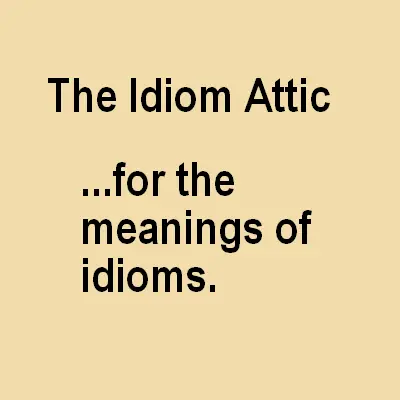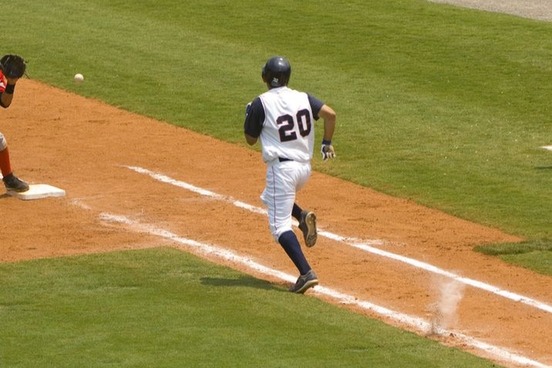Tour de force
| Grammarist
Tour de force is French for feat of strength . In English, we use it to describe a particularly impressive display of skill and effort. The phrase came to English in the early 19th century, and it has become increasingly common ever since. Today, we use it not only as a noun phrase but also as a phrasal adjective.
There is no reason to hyphenate tour de force when it’s a noun phrase (e.g., her performance was a tour de force ), but hyphenating it makes sense when it’s a phrasal adjective ( she gave a tour-de-force performance ). But it often goes unhyphenated even as a phrasal adjective.
We tend to italicize words and phrases from other languages when they are new to English, but tour de force is no longer new, so there’s no need to italicize it in normal use. But because tour and force are English words, some publications still italicize it to avoid confusion.
In French, the plural of tour de force is tours de force . In English, both tours de force and tour de forces are used (the former about twice as often as the latter).
Lord Byron thought proper, as a sort of tour de force , to versify, in his Don Juan, passages taken from prose works. [ Fraser’s Magazine for Town and Country (1839) ] To pass this examination is a tour de force of which very few men are capable, owing to the general inability of the average mortal to take in abstract conceptions. [ Music: a monthly magazine … (1895) ] At the same time, the trans-Atlantic flight is still a tour de force, as it will possibly be a very long time before we can hope to see an America-to-Ireland service. [ New York Times (1919) ] It was an organizational tour de force. The French overlooked nothing, except the spirit of the Olympics with its emphasis on brotherhood and fellowship. [ Calgary Herald (1968) ] Despite his late dismissal, Ponting allowed himself a touch of satisfaction as he looked back on his tour-de-force innings. [ Daily Mail (2005) ] Nigel Hawthorne, best known as Sir Humphrey Appleby, delivers a tour de force performance as the king. [ The Australian (2012) ]
Grammarist is a participant in the Amazon Services LLC Associates Program, an affiliate advertising program designed to provide a means for sites to earn advertising fees by advertising and linking to Amazon.com. When you buy via the links on our site, we may earn an affiliate commission at no cost to you.
2024 © Grammarist, a Found First Marketing company. All rights reserved.
- Dictionaries home
- American English
- Collocations
- German-English
- Grammar home
- Practical English Usage
- Learn & Practise Grammar (Beta)
- Word Lists home
- My Word Lists
- Recent additions
- Resources home
- Text Checker
Definition of tour de force noun from the Oxford Advanced Learner's Dictionary

tour de force
- a cinematic tour de force
- It was described as a ‘literary tour de force’.
Take your English to the next level
The Oxford Learner’s Thesaurus explains the difference between groups of similar words. Try it for free as part of the Oxford Advanced Learner’s Dictionary app
Phrase Finder
- Tour de force
A feat of strength power or skill.
He managed to lift the back off that truck off the ground – a real tour de force.
Where did it originate?
Britain , 19th century.
Where is it used?
Worldwide .
Hear the idiom spoken
More idioms about, browse more idioms, about the author.

Gary Martin

A B C D E F G H I J K L M N O P Q R S T UV W XYZ
Adage Agreement America Animals Aphorism Australian origin Biblical Blue Body Brass tacks Building Business Childhood Children Cliche Clock Clothes Cockney rhyming slang Colour Comedy Conflict Country Crime Dance Date Death Disgust Drink Education Effort Emotion Euphemism Excellence Excess Failure Family First world Food French Fruit Greek origin Habit Hair Happiness Honesty Household items Hyperbole Language Latin Legal Location Luck Madness Medical Military Misfortune Money Music Name Nature Nautical Nonsense Number Patience Place Proverb Proverbial Reduplication Relaxation Religion Risk Science Secrets Sex Shakespeare Slang Sport Stupidity Success Surprise Technology The human body Theatre Time Tool Travel Trickery Vehicle Water Weather Work
Words and phrases
Personal account.
- Access or purchase personal subscriptions
- Get our newsletter
- Save searches
- Set display preferences
Institutional access
Sign in with library card
Sign in with username / password
Recommend to your librarian
Institutional account management
Sign in as administrator on Oxford Academic
tour de force noun
- Hide all quotations
What does the phrase tour de force mean?
There is one meaning in OED's entry for the phrase tour de force . See ‘Meaning & use’ for definition, usage, and quotation evidence.
Entry status
OED is undergoing a continuous programme of revision to modernize and improve definitions. This entry has not yet been fully revised.
How common is the phrase tour de force ?
How is the phrase tour de force pronounced, british english, where does the phrase tour de force come from.
Earliest known use
The earliest known use of the phrase tour de force is in the 1800s.
OED's earliest evidence for tour de force is from 1802, in a letter by Lord Elgin.
tour de force is a borrowing from French.
Etymons: French tour .
Nearby entries
- toupee, n. 1727–
- toupeed, adj. 1847–
- toupet, n. 1728–
- toupeted, adj. 1903–
- toupet-titmouse, n. 1785–
- tour, n. c1320–
- tour, v. 1746–
- Tourangeau, n. & adj. 1883–
- Tourangeois, adj. & n. 1857–
- tourbillion | tourbillon, n. 1477–
- tour de force, n. 1802–
- Tour de France, n. 1922–
- tour d'horizon, n. 1952–
- tourelle, n. c1330–
- tourer, n. 1927–
- tourette, n.¹ 1881–
- Tourette, n.² 1899–
- Tourettism, n. 1981–
- tourification, n. 1802–
- tourify, v. 1820–
- tourifying, adj. 1825–
Thank you for visiting Oxford English Dictionary
To continue reading, please sign in below or purchase a subscription. After purchasing, please sign in below to access the content.
Meaning & use
Pronunciation, entry history for tour de force, n..
tour de force, n. was first published in 1913; not yet revised.
tour de force, n. was last modified in July 2023.
Revision of the OED is a long-term project. Entries in oed.com which have not been revised may include:
- corrections and revisions to definitions, pronunciation, etymology, headwords, variant spellings, quotations, and dates;
- new senses, phrases, and quotations which have been added in subsequent print and online updates.
Revisions and additions of this kind were last incorporated into tour de force, n. in July 2023.
Earlier versions of this entry were published in:
OED First Edition (1913)
- Find out more
OED Second Edition (1989)
- View tour de force in OED Second Edition
Please submit your feedback for tour de force, n.
Please include your email address if you are happy to be contacted about your feedback. OUP will not use this email address for any other purpose.
Citation details
Factsheet for tour de force, n., browse entry.
Start each day with the Word of the Day in your inbox!
- By clicking "Sign Up", you are accepting Dictionary.com Terms & Conditions and Privacy policies.
- Name This field is for validation purposes and should be left unchanged.
Word of the Day
Word of the day, tour de force.
a feat requiring unusual strength, skill, or ingenuity.
More about tour de force
Tour de force “a feat requiring unusual strength, skill, or ingenuity” is a borrowing from French, in which the phrase literally means “turn of strength.” French tour has two separate derivations: the noun tour “a turn” in tour de force is related to the verb tourner “to turn” (from Latin tornāre ), and this tour is not to be confused with tour “tower” (from Latin turris ). This distinction is why the Tour de France refers to a long, winding bicycle race while the tour Eiffel is the original French name for the Eiffel Tower. Other derivatives of Latin tornāre “to turn” include return , tourniquet , tourist , and tornado . Tour de force was first recorded in English circa the year 1800.
how is tour de force used?
“The idea that nature is not bound by the artificial boundaries that we assign to physics, chemistry, biology or mathematics has been around a long time,” said astrophysicist Mayank Vahia …. He said the Nobel prize in physiology and medicine shared by Jim Watson, Francis Crick and Maurice Wilkins, for instance, for unraveling the double helix structure of DNA, might not have been won but for the technical (read physical) tour de force of X-ray diffraction studies achieved by Rosalind Franklin and her colleagues.
A tour de force from 1938, by the German-born Argentine Annemarie Heinrich in league with her sister Ursula, finds the two reflected in a mirrored orb. In the background—from our point of view—Annemarie grins as she snaps the shutter of a standing camera; Ursula looms gigantically and wildly distorted as she leans forward to grasp the sphere. It takes time, enjoyably, to puzzle out the picture’s vertiginous structure.
Listen to the podcast
the arc of the horizon measured clockwise from the south point, in astronomy, or from the north point, in navigation, to the point where a vertical circle through a given heavenly body intersects the horizon.
More about azimuth
Azimuth “the arc of the horizon measured clockwise” derives by way of Middle French azimut from Arabic as-sumūt “the ways,” an assimilated plural form of al-samt “the way.” As we learned from the recent Word of the Day acequia , the prefix al- “the” assimilates to match the first sound in the word that follows—but only when that sound is pronounced with the tip of the tongue. Azimuth shares an origin with zenith “the point on the celestial sphere vertically above a given position,” but while azimuth closely resembles its Arabic source, zenith arose when Arabic samt was borrowed into Old Spanish as zemt and was subsequently misread as zenit . We never know when a small scribal error can end up creating a new word! Azimuth was first recorded in English in the late 14th century.
how is azimuth used?
While we say that the sun sets in the west, most times that’s not exactly the case …. [B]etween the first day of spring and the first day of autumn, the position on the horizon where the sun appears to set, known as the azimuth , actually occurs somewhat north of due west. The azimuth of the sunset slowly shifts northward until the day of the June solstice; thereafter, it reverses course and shifts back to the south. On June 21, the sun sets at an azimuth of 302 degrees, or 32 degrees north of due west. But for the setting sun to be seen from all of Manhattan’s cross streets, its azimuth must be 299 degrees, or 29 degrees north of due west.
an act or instance of fighting a shadow or an imaginary enemy.
More about sciamachy
Sciamachy “an act of fighting a shadow” is adapted from Ancient Greek skiamachía , equivalent to skiá “shadow” and máchē “battle.” Skiá is sometimes romanized as scia- , consistent with the Latin trend of changing Greek kappa to Roman c , but other derivatives of skiá in English hew closely to the original spelling and appear as skia- , as in skiagraph “a photographic image produced by the action of x-rays or nuclear radiation.” Máchē is a popular element in technical terms related to fighting or warfare. When combined with taûros “bull,” we get tauromachy “bullfighting,” and when combined with lógos “word,” we get logomachy “a dispute about or concerning words.” Sciamachy was first recorded in English circa 1620.
how is sciamachy used?
As farewells were played, Order became disorder And sciamachy took root. In the dark place, where mirrors Refracted black light Breathing became ragged. … And, I, cannot now Recognise a face. There is but a record Of a dark place.
Aru is indulging in sciamachy . She has the frustrated look of a person combating a shadow, a shadow that absorbs her anger and gives her nothing in return. As for me, it was not only her questions that daunted me, it was her look as well, the clear-eyed, judging gaze…
Get A Vocabulary Boost In Your Inbox
- By clicking "I'M IN", you are accepting Dictionary.com Terms & Conditions and Privacy policies.
- Email This field is for validation purposes and should be left unchanged.
- Mar 05, 2022 enumerate
- Mar 04, 2022 pindan
- Mar 03, 2022 sylvan
- Mar 02, 2022 bibliophile
- Mar 01, 2022 accelerando
- Feb 28, 2022 metronymic
- Feb 27, 2022 feijoada
- Feb 26, 2022 frowzy
- Feb 25, 2022 coronach
Definition of 'tour de force'
- tour de force

tour de force in American English
Tour de force in british english, examples of 'tour de force' in a sentence tour de force, browse alphabetically tour de force.
- tour a site
- tour company
- tour d'horizon
- tour destination
- tour director
- tour en l'air
- All ENGLISH words that begin with 'T'
Quick word challenge
Quiz Review
Score: 0 / 5

Wordle Helper

Scrabble Tools

- tour de force
- 1.1 Etymology
- 1.2 Pronunciation
- 1.3.1 Related terms
- 1.3.2 Translations
- 1.3.3 See also
- 2.1.1 Synonyms
- 3.1 Etymology
- 3.2 Pronunciation
- 3.3.1 Descendants
- 4.1.1 Declension
English [ edit ]
Etymology [ edit ].
Borrowed from French tour de force ( “ feat of strength ” ) , circa 19th century.
Pronunciation [ edit ]
- ( US ) IPA ( key ) : /ˌtuɹ.dəˈfoɹs/ , /ˌtuɹ.dəˈfɔɹs/

Noun [ edit ]
tour de force ( plural tours de force )
- 1976 , Richard Dawkins , The Selfish Gene , Kindle edition, OUP Oxford, published 2016 , page 429 : Much as I admire Wilson’s tour de force —I wish people would read it more and read about it less—my hackles have always risen at the entirely false suggestion that his book influenced mine.
Related terms [ edit ]
- tour d'horizon
Translations [ edit ]
See also [ edit ].
- coup de force
Dutch [ edit ]
tour de force m ( plural tours de force )
- exploit , tour de force
Synonyms [ edit ]
- huzarenstuk
French [ edit ]
Literally, “ turn of strength ” , or more loosely translated as “ turn of force ” .
- IPA ( key ) : /tuʁ də fɔʁs/
Descendants [ edit ]
German [ edit ].
tour de force f ( genitive tour de force , plural tours de force )
- Alternative spelling of Tour de Force
Declension [ edit ]
- English terms borrowed from French
- English terms derived from French
- English terms with IPA pronunciation
- English terms with audio links
- English lemmas
- English nouns
- English countable nouns
- English multiword terms
- English terms with usage examples
- English terms with quotations
- Dutch lemmas
- Dutch nouns
- Dutch multiword terms
- Dutch masculine nouns
- French terms with IPA pronunciation
- French terms with audio links
- French lemmas
- French nouns
- French countable nouns
- French multiword terms
- French masculine nouns
- German lemmas
- German nouns
- German multiword terms
- German feminine nouns
Navigation menu
A Comprehensive Guide to Forming Compounds

The Compound
A compound is a word or word group that consists of two or more parts that work together as a unit to express a specific concept. Examples are double-check , cost-effective , around-the-clock , hand-to-hand , forward-thinking , eyeliner , and iced tea . They might also be formed from prefixes or suffixes , as in ex-president , supermicro , presorted , shirtless , or unforgivable .
Basically, compounds are written in one of three ways: solid ( teapot ), hyphenated ( player-manager ), or open (which ranges from phrases such as off and on or little by little to combinations like washing machine —have a field day finding more). Because of the variety in formation, the choice among the styles for a given compound represents one of the most vexing of all style issues writers—and lexicographers—encounter.
For some terms, it is often acceptable to choose freely among open, hyphenated, and solid alternatives, even though the term has been used in English for an extended period (for instance, lifestyle , life–style , or life style ). Although the styling that ultimately takes hold for a compound may be determined by nothing more than editorial and writerly preference, there are patterns of new compounds as they become established in the English language. Compound nouns, for instance, are usually written as one word; compound verbs are generally written as two; compound adjectives are often written with a hyphen. But note that we added "usually," "generally," and "often"—we're hedging. (Be advised that we'll be using noncommittal terms throughout, and, essentially, that's the point of the following articles: there aren't fast rules to forming compounds, but there are patterns.)

The Unit Modifier
Compound adjectives are combinations of words that work together to modify a noun—technically, they work as unit modifiers . As unit modifiers, they are distinguished from other strings of adjectives that may also precede a noun. For instance, in the constructions "a low, level tract of land" or "that long, lonesome highway," the two adjectives each modify the noun separately. We are talking about a tract of land that is both low and level and about a highway that is both long and lonesome. These are regarded as coordinate modifiers .
In the examples "a low monthly fee" and "a wrinkled red shirt," the first adjective modifies the noun plus the second adjective. In other words, we mean that the monthly fee is low and the red shirt is wrinkled. These are noncoordinate modifiers . In the example "low-level radiation," we do not mean radiation that is low and level or level radiation that is low; we mean radiation that is at a low level. Both words are working as a unit to modify the noun—thus, they are unit modifiers .
Unit modifiers are mostly hyphenated. Hyphens not only make it easier for readers to grasp the relationship of the words but also aid in avoiding confusion. For example, the hyphen in "a call for a more-specialized curriculum" removes any ambiguity as to which the word more modifies, and the hyphen in re-sign distinguishes it from resign . Other examples are co-ed and coed , shell-like and shelllike , over-react and overreact , co-worker and coworker , which have either consecutive vowels, doubled consonants, or simply an odd combination of letters and which the inclusion of a hyphen aids in their readability.

The Particle + Noun Compound
Preposition/adverb ( particles ) + noun compounds are styled solid, especially when they are short and the first syllable is accented followed by a syllable with falling stress (as in afterthought , crossbones , download , offhand , upstairs , outfield , onstage , overseas , underhand ). There are also hyphenated particle compounds, like in-house , off-the-cuff , off-line (or offline ), and on-line (or online ).
The styling of Internet ( internet ?)–related compounds ( e-mail / email , website / web site ) remains in flux, with the same compound styled different ways in different publications. We continue to be eagle-eyed lexicographers in our Western Massachusetts-based aerie.

Prefixed, Suffixed, and Combining Form Compounds
Compounds—new, permanent, and temporary—are formed by adding word elements to existing words or by combining word elements. In English, there are three basic word elements: the prefix (such as anti- , non- , pre- , post- , re- , super- ), the suffix (as -er , -ism , -ist , -less , -ful , -ness ), and the combining form ( mini- , macro- , pseudo- , -graphy , -logy ). Prefixes and suffixes are usually attached to existing words; combining forms are usually combined to form new words ( photomicrograph ).
For the most part, compounds formed from a prefix and a word are usually written solid ( superhero ). However, if the prefix ends with a vowel and the word it is attached to begins with a vowel, the compound is usually hyphenated ( de-escalate , co-organizer , pre-engineered ). But there are exceptions: reelection , cooperate , for example. In addition, usage calls for hyphenation between a prefix and a capitalized word or number (post-Colonial, pre-19th century).
A prefixed compound that would be identical with another word, if written solid, is usually hyphenated to prevent misreading ( re-creation , co-op , multi-ply ). Prefixed compounds that might otherwise be solid are often hyphenated in order to clarify their formation, meaning, or pronunciation ( non-news , de-iced , tri-city ). Also, such compounds formed from combining forms like Anglo- , Judeo- , or Sino- are hyphenated when the second element is an independent word and solid when it is a combining form ( Judeo-Christian , Sino-Japanese , Anglophile ).
Some prefixes, and initial combining forms, have related independent adjectives or adverbs that may be used where the prefix might be expected. A temporary compound with quasi(-) or pseudo(-) , therefore, might be written open as modifier + noun or hyphenated as combining form + noun. Thus, the writer must decide which style to follow ( quasi intellectual or quasi-intellectual ; pseudo liberal or pseudo-liberal ).
Compounds formed by adding a suffix to a word are usually written solid ( yellowish , characterless ), except those having a base word that has a suffix beginning with the same letter or is a proper name ( jewel-like , American-ness ). Then, there are unique formations such as president-elect and heir apparent . Additionally, when a word is used as a modifier of a proper name, it is usually attached by a hyphen ("a Los Angeles-based company," "a Pulitzer Prize-winning author").

Permanent and Temporary Compounds
Most two-word permanent and temporary compounds (unit modifiers) are hyphenated when placed before a noun ("one-way street," "a risk-free investment," "East-West trade agreements," "blue-gray/bluish-gray paint") but are often open when following a noun ("The author is well known").
Permanent compounds are those that are so commonly used that they have become—need we say—permanent parts of the language. Temporary compounds are created to meet a writer's need at a particular moment, and they are often formed of an adverb (such as well , more , less , still ) followed by a participle, and hyphenated when placed before a noun ("a still-growing company," "a more-specialized operating system," "a now-vulnerable opponent"). Temporary compounds, often formed from an adverb ending in the suffix -ly followed by a participle, may sometimes be hyphenated but may also be open because adverb + adjective + noun is a normal word order ("an internationally-known artist," "a beautifully illustrated book").
Temporary adjectival compounds may also be formed by using a compound noun. If the compound noun is an open compound , it is usually hyphenated so that the relationship of the words to form an adjective is immediately apparent to the reader ("a tax-law case," "a minor-league pitcher," "problem-solving abilities"). If readily recognizable, the units may occur without a hyphen ("a high school diploma" or "a high-school diploma"; "an income tax refund" or "an income-tax refund"). Also, if the words that make up a compound adjective follow the noun they modify, they fall in normal word order and are, therefore, no longer considered unit modifiers that require hyphenation ("The decisions were made on the spur of the moment"; "They were ill prepared for the journey"; "The comments were made off the record"; "I prefer the paint that is blue gray").

Open or Close the Compound?
When a noun + noun compound is short, and established in the English language and pronounced with equal stress on both nouns, the styling is likely to be open ( bean sprouts , fuel cell , fire drill ). Many short noun + noun compounds, however, that begin as temporary open ones and have the first word accented tend to become solid ( database , football , paycheck , hairbrush ); this is also the case for some adjectives ( shortcut , drywall —but then there's red tape and red-hot ). There are also compounds formed from a verb followed by a noun that is its object, and they tend to be styled as solid ( carryall , pickpocket ). Vice versa, there are noun compounds consisting of a verb form preceded by a noun that is its object ( fish fry , eye-opener , roadblock ), and adjective + noun compounds that are written open ( genetic code , minor league ).
Writers also use a hyphen to make the "unit" relationships of nouns immediately apparent ( English-speakers , Spanish-speaking students , fund-raiser , gene-splicing ), but compounds in which a noun is the object of a following verb-derived word tend to be written open ( problem solver , air conditioning ).
Finally, when the nouns in a noun + noun compound describe a double title or function, the compound is hyphenated ( city-state , secretary-treasurer , hunter-gatherer , bar-restaurant ). And compounds formed from a noun or adjective followed by man , woman , person , or people , as well as denoting an occupation, are regularly solid ( congresswoman , salespeople ). We're pretty sure about those guidelines.

The Verb + Adverb Compound
These compounds may be hyphenated or solid. The compounds with two-letter particles (such as by , to , in , up , on ) are most frequently hyphenated since the hyphen aids in quick comprehension ( lean-to , trade-in , add-on , start-up ). Compounds with three-letter particles ( off , out , through ) are hyphenated or solid with about equal frequency ( spin-off , payoff , time-out , follow-through , giveaway ).
And then there are the verb + -er + particle compounds and verb + -ing + particle compounds. Except for established words like passerby , these compounds are hyphenated ( hanger-on , runner-up , listener-in , falling-out , goings-on , talking-to ). There are also the two-word established forms consisting of a verb followed by an adverb or a preposition, which is styled open: set to , strike out . Then we have words composed of a particle followed by a verb that are usually styled solid ( upgrade , bypass ).

The Compound Noun Turned Verb
The verb form of a compound noun (whether open or hyphenated) most often is spelled with a hyphen ( field-test , water-ski , rubber-stamp ), whereas a verb derived from a solid noun is written solid ( mastermind , brainstorm , sideline ). That one's simple enough. Phew.

To Hyphenate or not to Hyphenate?
That is the question, especially when it comes down to adverb and adjective compounds. And the stickler's answer is to hyphenate when the modifier is before the word it modifies and to write the compound in open form when it follows it (since there is little or no risk of ambiguity). For example, a journalist might publish a word-for-word quotation or a person might be quoted word for word by the journalist, or a writer might be told that what is said is off the record, and any off-the-record information is to remain confidential. However, usage evidence shows that this formula is not closely followed: a team could play back-to-back games or play two games back-to-back; a boss and employee might have a face-to-face discussion or talk face-to-face; a candidate's position might be middle-of-the-road; a child could be accident-prone like his or her accident-prone parent. The point is: many permanent and temporary compounds keep their hyphens after the noun in a sentence if they continue to function as unit modifiers.
But compound adjectives composed of foreign words are not hyphenated when placed before a noun unless they are always hyphenated ("per diem expenses," "the a cappella chorus," but "a ci-devant professor"). Also, chemical names used as modifiers before a noun are not hyphenated ("a citric acid solution"). And a compound noun having three or more words may be either hyphenated or open, depending on preference and usage evidence: editor in chief , base on balls , give-and-take , good-for-nothing , know-it-all , justice of the peace , jack-of-all-trades , pick-me-up , stick-to-itiveness .

The Hyphen as Apostrophe
Hyphens are sometimes used to produce inflected forms of verbs that are made of individually pronounced letters or to add an -er ending to an abbreviation—although apostrophes are more commonly used for the purpose ( x-ed vs. x'd , you decide).
From the time the American League first allowed designated hitters in 1973, another 41 years passed before the first DH was inducted into the Baseball Hall of Fame. Frank Thomas will finally get some company this weekend when Edgar Martinez and Harold Baines join him in Cooperstown, New York. Three Hall of Famers in 46 years is a powerful testament to the challenge of DH-ing. — J. P. Hoornstra, The Orange County Register , 17 July 2019 His continued growth as a player will be key to NU's secondary growing into one of the league's best, and Jackson has the right kind of coach, former NFL-er Travis Fisher, to push him toward it. — Sam McKewon, The Omaha (Nebraska) World-Herald , 2 Aug. 2019

The Hyphen in Chemical Compounds
A hyphen separates prefixes composed of single letters, numerals, or letter-numeral combinations from the rest of a chemical term. In addition, italicized prefixes are followed by a hyphen. The hyphen is also used to separate units of certain chemically complex terms:
α-amino-β-( p -hydroxyphenyl)propionic acid 2-methyl-3-ethylpentane 6 H -1,2,5-thiadiazine
In amino acid sequences, hyphens are used to separate the abbreviations ("Ala-Lys-Pro-Thr-Tyr-Phe-Gly-Arg-Glu-Gly").
It should be noted, however, that most chemical names used as modifiers are not hyphenated ("the amino acid sequence," "sodium hypochlorite bleach").

Hyphenated Numbers
Numbers that form the first part of a compound modifier that express measurement are followed by a hyphen ("a 28-mile trip," "a 10-pound weight," "a nine-pound baby"), or that are used in a ratio ("a fifty-fifty chance," "60-40 chance"). An adjective that is composed of a number followed by a noun in the possessive is not hyphenated ("two weeks' notice," "a four blocks' walk"). Also, when the modifier follows a noun, it is usually not hyphenated ("The teacher required an essay that was five pages"; "Children who are twelve years old and under can order from the menu"; "The fence is 12 feet high").
Hyphens are used in fractions (e.g., two-thirds ), and they join the parts of whole numbers ( twenty-one ). The hyphen is also found in serial numbers, and social security or engine numbers. If you're measuring something, you might also use the hyphen ( foot-pound , kilowatt-hour , column-inch , light-year ), or if you are talking about periods of time ("pre-2000" or "post-2000," or "post-20th/twentieth century").

Reduplicative Compounds
Compounds that are formed by reduplication , and so consist of two similar-sounding elements (such as hush-hush , razzle-dazzle , or hugger-mugger ), are usually hyphenated if each of the elements is made up of more than one syllable, but the solid styling for such words is also common ( crisscross , knickknack , singsong ). For very short words (such as no-no , so-so ), words in which both elements may have primary stress ( tip-top ), and for injections ( tsk-tsk ), the hyphenated styling is more common.

Word of the Day
See Definitions and Examples »
Get Word of the Day daily email!
Games & Quizzes

Usage Notes
Prepositions, ending a sentence with, 33 transition words and phrases, is 'irregardless' a real word, 8 more grammar terms you used to know: special verb edition, point of view: it's personal, grammar & usage, more words you always have to look up, 'fewer' and 'less', 7 pairs of commonly confused words, more commonly misspelled words, your vs. you're: how to use them correctly, great big list of beautiful and useless words, vol. 4, 9 other words for beautiful, why jaywalking is called jaywalking, the words of the week - may 17, birds say the darndest things.
- Cambridge Dictionary +Plus
English pronunciation of tour de force
Tour de force.
Your browser doesn't support HTML5 audio
(English pronunciations of tour de force from the Cambridge Advanced Learner's Dictionary & Thesaurus and from the Cambridge Academic Content Dictionary , both sources © Cambridge University Press)

Word of the Day
a computer program designed to have a conversation with a human being, usually over the internet

Searching out and tracking down: talking about finding or discovering things

Learn more with +Plus
- Recent and Recommended {{#preferredDictionaries}} {{name}} {{/preferredDictionaries}}
- Definitions Clear explanations of natural written and spoken English English Learner’s Dictionary Essential British English Essential American English
- Grammar and thesaurus Usage explanations of natural written and spoken English Grammar Thesaurus
- Pronunciation British and American pronunciations with audio English Pronunciation
- English–Chinese (Simplified) Chinese (Simplified)–English
- English–Chinese (Traditional) Chinese (Traditional)–English
- English–Dutch Dutch–English
- English–French French–English
- English–German German–English
- English–Indonesian Indonesian–English
- English–Italian Italian–English
- English–Japanese Japanese–English
- English–Norwegian Norwegian–English
- English–Polish Polish–English
- English–Portuguese Portuguese–English
- English–Spanish Spanish–English
- English–Swedish Swedish–English
- Dictionary +Plus Word Lists
- All translations
To add ${headword} to a word list please sign up or log in.
Add ${headword} to one of your lists below, or create a new one.
{{message}}
Something went wrong.
There was a problem sending your report.

tour de force (n.)
"feat of strength," 1802, French; see tour (n.) + force (n.).
Entries linking to tour de force
c. 1300, "physical strength," from Old French force "force, strength; courage, fortitude; violence, power, compulsion" (12c.), from Vulgar Latin *fortia (source also of Old Spanish forzo , Spanish fuerza , Italian forza ), noun use of neuter plural of Latin fortis "strong, mighty; firm, steadfast; brave, bold" (see fort ).
Meanings "power to convince the mind" and "power exerted against will or consent" are from mid-14c. Meaning "body of armed men, a military organization" first recorded late 14c. (also in Old French). Physics sense is from 1660s; force field attested by 1920. Related: Forces .
c. 1300, "a turn, a shift on duty," from Old French tor, tourn , tourn "a turn, trick, round, circuit, circumference," from torner, tourner "to turn" (see turn (v.)). Sense of "a continued ramble or excursion" is from 1640s. Tour de France as a bicycle race is recorded in English from 1916 ( Tour de France Cycliste ), distinguished from a motorcar race of the same name. The Grand Tour , a journey through France, Germany, Switzerland, and Italy formerly was the finishing touch in the education of a gentleman.
Trends of tour de force
More to explore, share tour de force.
updated on September 28, 2017
Trending words
- 1 . pentecost
- 2 . gallivant
- 4 . marriage
- 5 . galavant
- 6 . hamburger
- 7 . insinuation
Dictionary entries near tour de force
tour de force
- English (English)
- 简体中文 (Chinese)
- Deutsch (German)
- Español (Spanish)
- Français (French)
- Italiano (Italian)
- 日本語 (Japanese)
- 한국어 (Korean)
- Português (Portuguese)
- 繁體中文 (Chinese)

IMAGES
VIDEO
COMMENTS
Tour de force. Tour de force is French for feat of strength. In English, we use it to describe a particularly impressive display of skill and effort. The phrase came to English in the early 19th century, and it has become increasingly common ever since. Today, we use it not only as a noun phrase but also as a phrasal adjective.
tour de force: [noun] a feat or display of strength, skill, or ingenuity.
TOUR DE FORCE definition: 1. an achievement or performance that shows great skill and attracts admiration: 2. an achievement…. Learn more.
Excellent article! I have a question, which comes from reading the New Hart's Rules 3.3. They advice hyphenating compound adjectives formed from an adjective and a participle also after the noun, e.g., good-looking (as you mention), but further up, they say that compound adjectives should not be hyphenationed when after a noun - they give as an example "long standing".
Tour de force definition: an exceptional achievement by an artist, author, or the like, that is unlikely to be equaled by that person or anyone else; stroke of genius. See examples of TOUR DE FORCE used in a sentence.
A masterly or brilliant stroke, creation, effect, or accomplishment.... Click for English pronunciations, examples sentences, video.
Definition of tour de force noun in Oxford Advanced Learner's Dictionary. Meaning, pronunciation, picture, example sentences, grammar, usage notes, synonyms and more.
Tour de force; Toy boy; Travel; About the Author. Gary Martin. Writer and researcher on the origins of phrases and the creator of the Phrase Finder website. Over the past 26 years more than 700 million of his pages have been downloaded by readers. He is one of the most popular and trusted sources of information on phrases and idioms.
What does the phrase tour de force mean? There is one meaning in OED's entry for the phrase tour de force. See 'Meaning & use' for definition, usage, and quotation evidence. Entry status. OED is undergoing a continuous programme of revision to modernize and improve definitions. This entry has not yet been fully revised.
Tour de force "a feat requiring unusual strength, skill, or ingenuity" is a borrowing from French, in which the phrase literally means "turn of strength.". French tour has two separate derivations: the noun tour "a turn" in tour de force is related to the verb tourner "to turn" (from Latin tornāre ), and this tour is not to be ...
tour de force: 1 n a masterly or brilliant feat Type of: effort , exploit , feat a notable achievement
tour de force. From Longman Dictionary of Contemporary English tour de force /ˌtʊə də ˈfɔːs $ ˌtʊr də ˈfɔːrs/ noun [ singular] written something that is done very skilfully and successfully, and is very impressive His speech to the Democratic Convention was a tour de force. Examples from the Corpus tour de force • King's ...
TOUR DE FORCE meaning: 1. an achievement or performance that shows great skill and attracts admiration: 2. an achievement…. Learn more.
Tour De Force definition: A feat requiring great virtuosity or strength, often deliberately undertaken for its difficulty.
tour de force - WordReference English dictionary, questions, discussion and forums. All Free.
tour de force. noun: A feat of strength, skill, or ingenuity: an exceptional performance or achievement. From French tour (turn, feat) + de (of) + force (strength). Earliest documented use: 1802. "Listening to this breathtakingly brilliant tour de force made me appreciate why they call Pushkin the Russian Shakespeare.".
2 meanings: → See tour de force a masterly or brilliant stroke, creation, effect, or accomplishment.... Click for more definitions.
1. an exceptional achievement by an artist, author, or the like, that is unlikely to be equaled by that person or anyone else; stroke of genius. Herman Melville's Moby Dick was a tour de force. 2. a particularly adroit maneuver or technique in handling a difficult situation.
tour de force (plural tours de force) A feat demonstrating brilliance or mastery in a field . Now orbiting Earth, Gravity Probe B is a technological tour de force. 1976, Richard Dawkins, The Selfish Gene, Kindle edition, OUP Oxford, published 2016, page 429: Much as I admire Wilson's tour de force —I wish people would read it more and read ...
Examples of TOUR DE FORCE in a sentence, how to use it. 86 examples: It is another compositional tour de force, another demonstration of ars nova…
A hyphen separates prefixes composed of single letters, numerals, or letter-numeral combinations from the rest of a chemical term. In addition, italicized prefixes are followed by a hyphen. The hyphen is also used to separate units of certain chemically complex terms: α-amino-β-(p-hydroxyphenyl)propionic acid. 2-methyl-3-ethylpentane
TOUR DE FORCE pronunciation. How to say tour de force. Listen to the audio pronunciation in English. Learn more.
c. 1300, "a turn, a shift on duty," from Old French tor, tourn, tourn "a turn, trick, round, circuit, circumference," from torner, tourner "to turn" (see turn (v.)). Sense of "a continued ramble or excursion" is from 1640s. Tour de France as a bicycle race is recorded in English from 1916 (Tour de France Cycliste), distinguished from a motorcar race of the same name.